Keynote Speakers
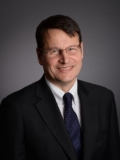
Philippe Merlo
Director, Air Traffic Management, EUROCONTROL
Tuesday, April 21, Conference Keynote Speaker
Mr. Philippe Merlo joined EUROCONTROL in February 2014. He is responsible for the areas of air traffic management, research and development, including the respective relations to international bodies such as ICAO. Mr. Merlo has spent all his career in air traffic management, having worked for the Directorate General for Civil Aviation (DGAC) of France since graduating from the Ecole Nationale de l’Aviation Civile.
He has held a number of senior posts, most recently deputy CEO of the Direction des Services de la Navigation Aérienne (DSNA) of France. In this role, he was responsible for crisis management, international relations and major projects. Previous posts have included director of the Direction of Technology and Innovation, head of the Bordeaux en-route air traffic control center, and head of the Air Navigation Financial Department. Mr. Merlo has a degree in engineering from the Ecole Polytechnique and a degree in civil aviation engineering from the Ecole Nationale de l’Aviation Civile in France.
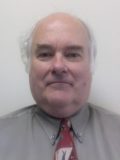
Michael Harrison
Tuesday, April 21, Evening Exhibitor Welcome Keynote Speaker
“Technology of Conflicts and Civil Aviation,” a history of war conflicts benefiting civil aviation.
Mike J. Harrison is an aviation evangelist associated with Aviation Management Associates in Alexandria, Virginia. He has over 44 years of aviation experience, 35 with the U.S. Air Force and the FAA in various capacities from being a pilot, aviation safety, capacity development, research and development of operational concepts ranging from airports to space. From 2005 to 2010 he served as the editor of The Journal of Air Traffic Control.
While with the FAA, he was the director of architecture and systems engineering until his retirement in 2002. For the last 9 years, he has worked to advance the details on the next generation air transportation system and its European counterpart efforts to change how air traffic management is provided. He holds a bachelor’s and master’s degree in biology from Oregon State University and advanced studies from American University.
Plenary Panel Chairs
Tuesday, April 21
Day 1: “Global Harmonization”
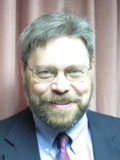
Steve Bradford
Steve Bradford is chief scientist for architecture and next generation (NextGen) development in the FAA’s NextGen Office. In this role he has participated in the development of the Joint Planning and Development Office’s (JPDO) NextGen concept, the RTCA National Airspace System (NAS) Operational Concept and the ICAO Air Traffic Management Operational Concepts Panel (ATMCP) Global Concept. He is the chairman of the Technical Review Board which monitors technical decisions related investments and the enterprise architecture.
He also works with elements of the FAA and the JPDO to develop midterm plans and five year budget requests to implement NextGen. He has a leading role in several new activities with SESAR Joint Undertaking (SJU) and has led several cooperative international efforts via action plans with EUROCONTROL. Previous activities include leading efforts to validate future concepts and developing the FAA’s NAS enterprise architecture.
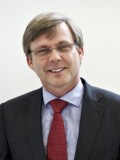
Michael Standar
Michael Standar is the chief strategies and external relations at the SESAR Joint Undertaking (SJU) based in Brussels, Belgium. He became chief of air traffic management in July 2011 and was promoted to his current position in January 2012. He was an active Swedish member of ICAO Air Traffic Management Operational Concepts Panel (ATMCP) developing the ICAO Global Air Traffic Management (ATM) Operational Concept Document, which continued into the Air Traffic Management Requirements and Performance Panel (ATMRPP).
In the early 1990s, he was offered a post at the Swedish Civil Aviation Administration (CAA) headquarters, later the LFV (Swedish Civil Aviation Administration) ANS (Air Navigation Services) service provider. There, he was promoted first to head units for ATM operational developments and operational support and later head of the business area of LFV’s ATM support and development before taking up duties as LFV director for ANS business development.
Standar is also co-chair of the Thursday plenary panel.
Wednesday, April 22
Day 2: “UAS/RPAS Integration in Civil Airspace”
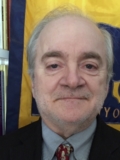
Stephen Van Trees
Stephen P. Van Trees is lead, Communications Team, AIR-132, Aircraft Certification Service, FAA, Washington, D.C. His team works in data communications, weather systems, and unmanned aircraft systems (UAS). He is currently co-chair of the Command and Control (C2) Working Group for SC-228, the RTCA committee for UAS. Prior to this, he was active as aircraft road map lead in the national airspace system (NAS) enterprise architecture effort, integrating aircraft equipage and approval with overall NAS planning.
Over the last 17 years with the FAA he has held a variety of technical and management positions, including six years as manager, Avionics Systems Branch (AIR-130). The branch was the first in the FAA to manage UAS integration. He joined the FAA as an engineer in the data communication area, after working in a lead role in the U.S. team for development of the ICAO SARPs for the Aeronautical Telecommunication Network (ATN). He holds a Master of Science from both the UC Berkeley and George Mason University (computer science).
Thursday, April 23
Day 3: “Data Communications”
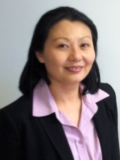
Diana Liang
Diana Liang has background in computer science and is currently the enterprise portfolio manager for the FAA’s NextGen (Next Generation) office; where she leads the annual planning of projects to support the implementation of NextGen. She is also a key technical advisor to multiple U.S. delegations in support to ICAO, including those working to define, and elaborate on air traffic management information models and transition strategies for global system wide information management (SWIM).
Michael Standar
See Standar’s bio above, also appearing in the Tuesday plenary panel.
ICNS Conference General Chairs
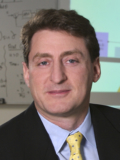
Lance Sherry
General Conference Chair
Lance Sherry is associate professor of systems engineering and operations research at George Mason University. Dr. Sherry also serves as the director of the Center for Air Transportation Systems Research at George Mason University. Dr. Sherry has over 30 years experience in the aviation industry serving as a flight-test engineer, flight control engineer, system engineer, lead system architect, program manager, strategic planning and business development. Dr. Sherry served as a fellow at RAND Corporation 1999-2001. He has published over 100 papers and journal articles, holds several patents, and has received awards for his work. Dr. Sherry is a graduate of Brown University with a Bachelor of Science in electrical engineering, and he holds both a Master of Science and a doctorate in industrial and system engineering from Arizona State University.
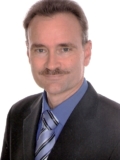
Dr. Michael Schnell
Technical Program Co-chair
Michael Schnell received his Dipl.-Ing. (Master of Science) and Dr.-Ing. (doctorate) degree in electrical engineering in 1989 and 1997, respectively. Since 1990 he has been a scientific researcher at the Institute of Communications and Navigation of the German Aerospace Center (DLR) where he is currently group leader and project manager of the Aeronautical Communications Group. Dr. Schnell is lecturer for multi-carrier communications and acts as selected advisor for the German Air Navigation Service Provider (DFS GmbH) within the Communications Panel and the Navigation Systems Panel of ICAO. He is a senior member IEEE and member of VDE/ITG.
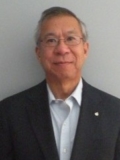
Roy T. Oishi
Technical Program Co-chair
Roy Oishi retired as an ARINC fellow in 2010 after 20 years working in air-ground voice and data communications. He has more than 30 years experience in software related to the automatic testing of avionics equipment. He served as chairman and then executive secretary of the Airlines Electronic Engineering Committee (AEEC) developing aviation standards in support of member airlines in the area of avionics design and development. As technical director of the ARINC Industry Activities Division he supported the airline technical committees including; aircraft networking and security, software interfaces for navigation and airport mapping databases, data loading of avionics systems, cabin electronics, and other areas. He supported the vice president for aviation services in the area of air-ground data communications systems for airline and air traffic control purposes. In that role, Mr. Oishi served as advisor to the U.S. representative to the ICAO Operational Data Link Panel and served on RTCA task forces on data communications and use of GPS as well as special committees on data link services and message hazard mitigation.
Workshop Chair
Aloke Roy
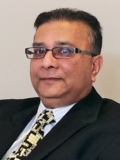
Mr. Aloke Roy is a senior program manager with Honeywell Advanced Technology. He currently manages data communication, information security and radio technology development programs supporting Honeywell Aerospace. Previously, Mr. Roy was director of programs at Flextronics Corporation managing several major telecommunications OEM accounts. In this role, Mr. Roy was responsible for business development, outsourcing, and globalization of hardware design activities supporting large volume contract electronic manufacturing. His prior experiences include various positions at AT&T Bell Laboratories and ARINC Aviation Systems Division.
As systems engineering director at ARINC, Mr. Roy oversaw development of SATCOM, HF, VDL, ATIS, and PDC standards and services. Currently, Mr. Roy chairs ICAO ACP Working Group “S” and RTCA Special Committee 223, which are developing the Aeronautical Mobile Airport Communication System requirements and operational performance standards. Mr. Roy holds several patents on aeronautical, wireless and secure communications.
